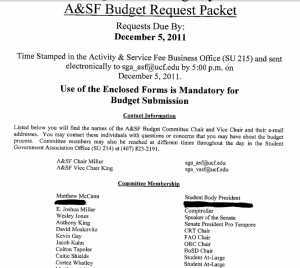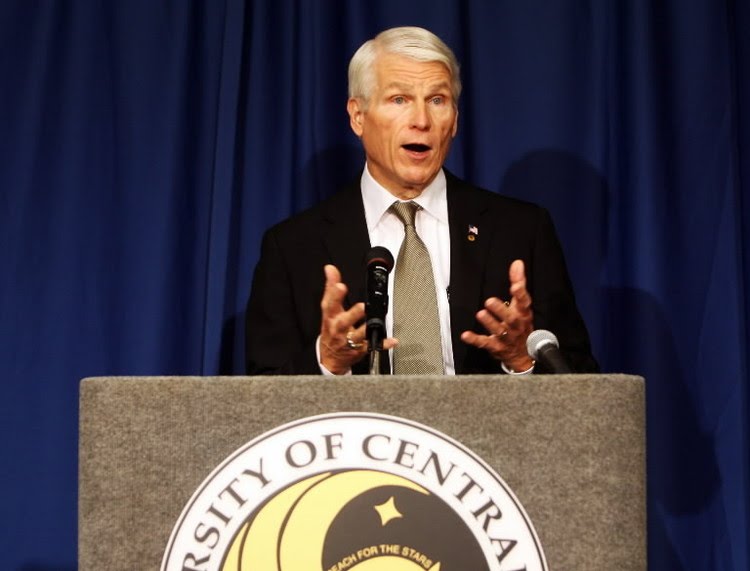If an elected Student Government Association official wastes your money or spends it illegally, you may never know. However, if someone in SGA commits rape, you have the right to know.
That appears to be the new reality here at the University of Central Florida, if Friday’s ruling from the 5th District Court of Appeal in Knight News vs. UCF stands.

Even though the court confirmed that Knight News “set forth valid public policy arguments as to why the type of records and information requested in this case should be subject to public disclosure,” the appellate court affirmed the trial court’s orders, finding student government budget and misconduct records are protected by the Family Education Rights and Privacy Act, known as FERPA.
While the ruling hurts the public’s ability to monitor allegations of improper SGA spending, which Knight News was seeking, the ruling appears to leave the door open to more transparency when it comes to “crimes of violence” and sexual assault.
“FERPA does permit the release of certain student disciplinary records and information where the alleged misconduct constitutes a crime of violence or a nonforcible sex offense,” the court wrote in its opinion.

In explaining its decision denying Knight News access to SGA election and impeachment affidavits the court said, “In the case before us, there is no suggestion that the nondisclosed information fell within one of these exceptions.”
However, the court explained that the ruling is “not final until the time expires to file motion for rehearing and disposition thereof if filed.”
Knight News is planning to file the motion asking for a rehearing, or alternatively, for the appellate court’s stamp of approval in having the case heard by the Florida Supreme Court.
Appellate courts have certified cases to be of great public importance and presented before the Supreme Court if “the question involves public policy,” according to the seventh edition of Florida Appellate Practice and Advocacy.
Based off of the information from the seventh edition of Florida Appellate Practice and Advocacy, the fact that the court recognized Knight News has “valid public policy arguments” could be a major point in getting the Florida Supreme Court to hear the case, despite the court’s belief the arguments are at least “more properly addressed to the appropriate legislative bodies.”
UCF had repeatedly threatened Knight News to drop the case or pay crippling sanctions — UCF’s attorney fees. UCF has been criticized for using hardball tactics against its own students by various organizations and lawyers.
“It’s one thing to defend your position in court and aggressively defend it, but here we have a situation where a university is not only denying records and access to meetings to the college newspaper but is seeking to sanction them for trying to conduct journalism,” attorney Mark Caramanica told the Student Press Law Center. Caramanica filed a friend of the court brief in support of Knight News for the SPLC and other press-rights groups.
The court denied UCF’s motion to make Knight News pay its attorney’s fees on Friday.
Even if the appellate ruling stands, it does not overturn a major victory Knight News won at the trial level. The trial court confirmed that UCF broke the law by trying to make Knight News travel off campus to its public relations office to obtain a record that is held on campus in the Greek life office.
The ruling is important because it prevents UCF from delaying the release of newsworthy records until they are no longer newsworthy with that unlawful tactic.
Check back for updates and reaction from students on campus.







